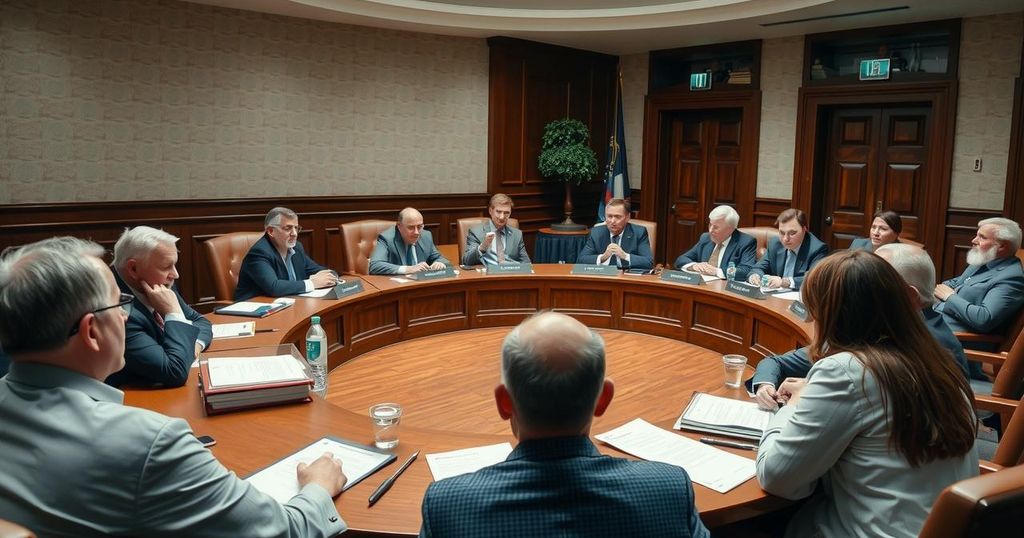The UN Security Council addressed the ongoing violence in eastern DRC, highlighting the need for decisive action against armed groups and the importance of regional cooperation through the Luanda process. UN Special Representative Bintou Keita emphasized governance reforms, humanitarian challenges, and the need for a coordinated effort to enhance civilian protection and foster lasting peace.
The UN Security Council convened to address the pressing need to mitigate violence in the eastern regions of the Democratic Republic of the Congo (DRC). UN Special Representative Bintou Keita provided insights into the ongoing instability, emphasizing the threats posed by armed groups including M23 and ADF in North Kivu and Ituri provinces. She acknowledged the positive strides made through the Luanda process—Nigeria’s mediation efforts—with a summit scheduled for December 15, fostering regional cooperation toward peace.
Ms. Keita highlighted various political reforms initiated by the DRC authorities aiming to enhance governance and public service delivery while ensuring security and justice system improvements. She urged all stakeholders to collaborate in averting tensions surrounding potential constitutional revisions, reiterating the importance of maintaining stability within the country.
The situation in North Kivu remains alarming, as the M23 faction consolidates control over significantly larger territories compared to previous years. Concurrently, ADF continues to pose a lethal threat to civilians. Although the frequency of attacks by CODECO and Zaïre has decreased, protecting civilians remains paramount in the face of ongoing conflicts linked to natural resource exploitation.
Humanitarian challenges persist as conflicts exacerbate the plight of displaced populations, now exceeding 6.4 million individuals. Efforts to address these issues include a more than 50% funding achievement for the 2024 Humanitarian Response Plan, representing a positive shift from previous years. The prevalence of gender-based violence remains a critical issue, with documented cases since the start of the year surpassing 90,000, with North Kivu being particularly affected.
In closing her statement, Ms. Keita reaffirmed her commitment to combating sexual exploitation within UN operations and commended the ICC’s renewed investigative efforts in the DRC. She brought attention to the voices of women and individuals with disabilities demanding peace and stability to return to their homes and communities. Such comprehensive efforts are vital for the restoration of dignity and security in eastern DRC.
The ongoing violence in the eastern Democratic Republic of the Congo, specifically in North Kivu and Ituri provinces, has become a critical concern for the United Nations Security Council. Various armed groups, including M23 and ADF, perpetuate this insecurity, causing significant civilian casualties and displacement. Political instability, marked by disputes over constitutional reforms, further complicates the efforts for peace and stability. Amidst these challenges, regional mediation efforts, particularly the Luanda process, aim to bring together key leaders to address the conflict and seek sustainable solutions. The humanitarian crises resulting from prolonged conflicts add urgency to the need for action.
The Security Council’s discussions underscored the urgency of addressing violence in the DRC’s eastern provinces. The acknowledgment of both local and regional frameworks for building peace, combined with comprehensive political and humanitarian strategies, is crucial for restoring stability. As the international community and regional actors engage in ongoing mediation, the protection of civilians and the empowerment of vulnerable groups must remain a priority to facilitate a return to normalcy and security in the DRC.
Original Source: news.un.org






